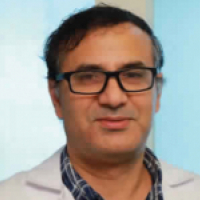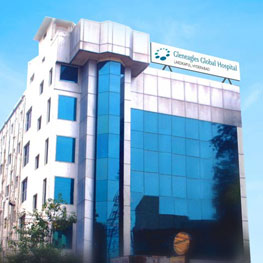About the Doctor
Dr Mahesh Gopasetty is a compassionate doctor and HPB surgeon with a rich experience of more than 15 years of practicing transplant with a successful background in the multi organ transplant. He worked with fortis hospital, Bangalore where he independently performed over 1000 liver transplants, 30 pancreas transplants, 3 small intestine transplants. Under his leadership he had completed 100 liver transplants in children in 5 years with successful result.
Dr Mahesh Gopasetty had been the part of Apollo Hospitals where he offered liver transplant. He also provided services to hospitals at Madurai, Bangalore, Hyderabad, Calcutta and Mumbai. He performed surgeries like Cadaver donor Domino liver transplant, Multivisceral transplant(liver, pancreas, Intestine en block in one patient), En block simultaneous heart and liver transplant, separate conjoined twins with omphalopagus.
Specialization
- Living Donor and Cadaveric Donor Liver Transplants
- Paediartic Liver Transplants
- Small Intestine Transplants
- Complex Liver Transplants
- Portal Hypertension Surgeries
- Kidney and Pancreas Transplants
- Complex Pancreatic Surgeries
Awards
- He got gold medal for the best out-going postgraduate student in surgery – Manipal Academy of Higher education university, Manipal ,India
- Won second prize for presentation at resident’s research recognition day, Medical university of south carolina, charleston, sc, Usa
- Got third Place in Association of Surgeons of India-National Postgraduate Surgical Quiz in Regional selection round.
- Second Prize for presentation ‘ at Resident’s Research day at the Medical University of South Carolina
Frequently Asked Questions About Liver Transplant
What is the procedure for proceeding with liver transplant?
You should seek an appointment with Dr Soin who will assess the need for a transplant, your fitness for it and counsel you regarding all aspects of the procedure.
If a transplant is thought suitable, you will then need a suitable donor from the family. The other option is to wait for a cadaveric organ (organs donated voluntarily by families of brain dead patients before artificial life support is withdrawn) but that wait can be very long since the cadaveric organ donation rates in India are very low.
Who can be a liver donor?
For living donation, the person must be a close relative aged between 18-55 years, have a matching blood group, and weigh between 50-90kg (but not fat).
What is the success rate of liver transplantation?
The success of the transplant procedure depends on the expertise available at a given centre. In most well established centres across the world including Dr. Soin’s Unit at Medanta Institute of Liver Transplantation, Gurgaon, when a liver transplant is performed before the patient becomes too ill with liver disease, it is successful in more than 90% patients and gives an excellent quality of life with a normal life expectancy for age.
How Long Would Surgery Take?
Liver transplants usually take from 4 to 14 hours. During the operation, surgeons will remove your liver and will replace it with the donor liver. The surgeon will disconnect your diseased liver from your bile ducts and blood vessels before removing it. The blood that flows into your liver will be blocked or sent through a machine to return to the rest of your body. The surgeon will put the healthy liver in place and reconnect it to your bile ducts and blood vessels. Your blood will then flow into your new liver. Because a transplant operation is a major procedure, surgeons will need to place several tubes in your body. These tubes are necessary to help your body carry out certain functions during the operation and for a few days afterward.
What Complications Are Associated With Liver Transplantation?
Two of the most common complications following liver transplant are rejection and infection.
Can I Go Back To My Daily Activities?
Certainly. After a successful liver transplant, most people are able to go back to their normal daily activities. Getting your strength back will take some time, depending on how sick you were before the transplant. Your doctor will be able to tell you how long your recovery period is likely to be.
- Work- After recovery, most people are able to resume work.
- Diet – Most people can go back to eating as they did before. Some medication may cause weight gain, others may cause diabetes or a rise in your cholesterol. Meal planning and a balanced low-fat diet can help you remain healthy. Transplant patients have a tendency to gain weight because of their retention of water. They are advised to lower their intake of salt to reduce or eliminate this water retention.
- Exercise – Most people can engage in physical activity after a successful liver transplant.
- Sex – Most people return to a normal sex life after liver transplantation. It is important for women to avoid becoming pregnant in the first year after transplantation. You should talk to your transplant team about sex and reproduction after transplantation.











